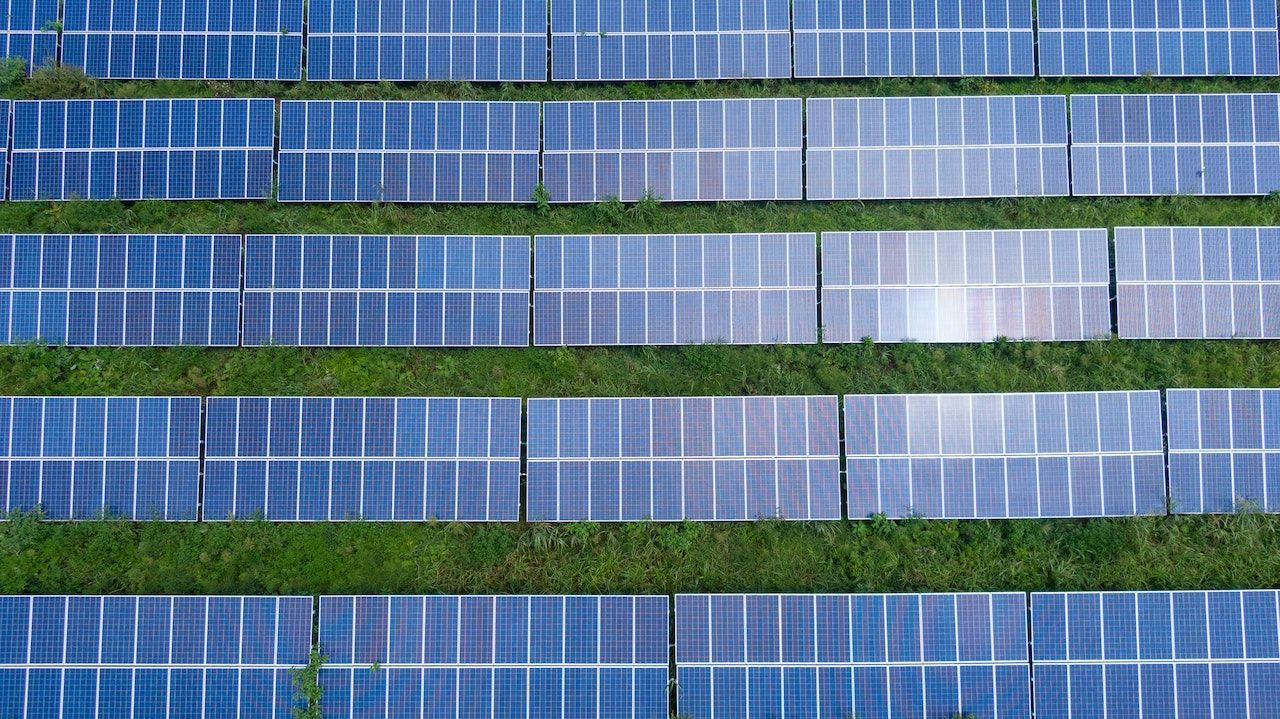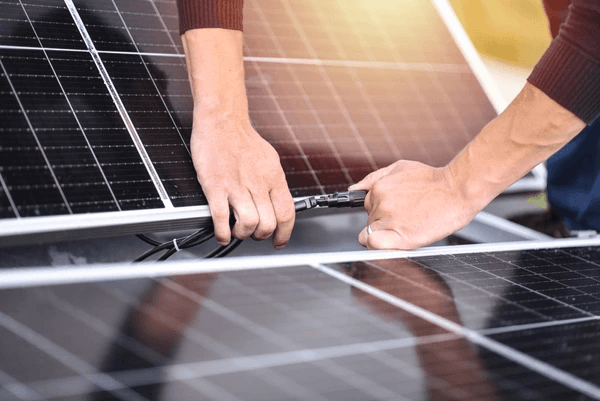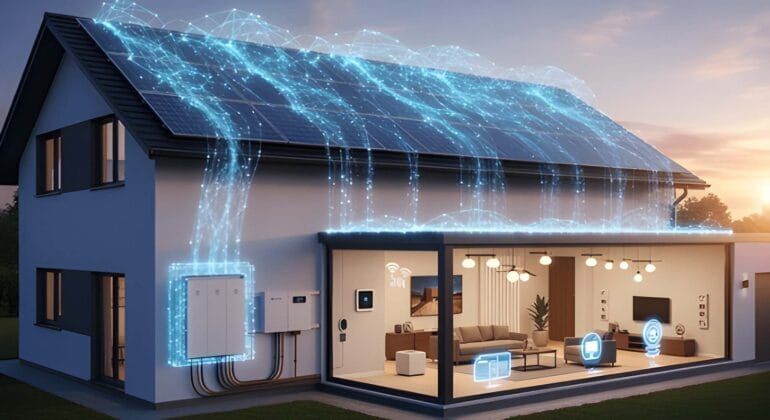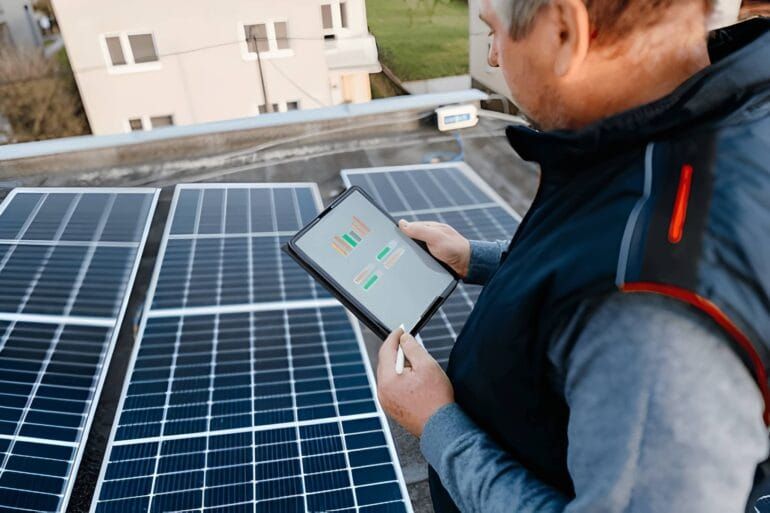In recent years, commercial solar panels have been a growing interest in renewable energy sources among small businesses. With increasing energy costs and a greater emphasis on sustainability, many small businesses are turning to commercial solar panels as a viable solution. Discover the benefits of commercial solar panels, including reduced energy expenses, environmental advantages, and the potential for long-term savings. In this article, we will explore how commercial solar panels can be a game-changer for sustainable operations in small businesses.
Introduction: Harnessing Solar Power for Small Businesses
As the cost of solar technology continues to decline, small businesses are recognizing the potential of solar power to meet their energy needs sustainably. Commercial solar panels are designed specifically for businesses and can be installed on rooftops, parking lots, or open areas adjacent to the business premises. These panels harness the abundant energy from the sun and convert it into electricity, which can power the business’s operations.
Understanding Commercial Solar Panels
Commercial solar panels are built using photovoltaic (PV) cells, which are responsible for converting sunlight into electricity. These panels consist of multiple PV cells connected together, forming a solar module. Several solar modules are then wired together to create an array capable of generating a significant amount of electricity.
Benefits of Commercial Solar Panels Cost Savings
One of the most compelling reasons for small businesses to invest in solar energy is the potential for long-term cost savings. By generating their own electricity from the sun, businesses can significantly reduce their monthly energy bills, freeing up funds for other essential investments. Moreover, solar energy systems often come with attractive financing options and government incentives that further enhance the financial feasibility of going solar. The stability of solar energy costs also shields small businesses from the volatility of traditional energy prices, providing greater financial predictability and stability in the long run.
Positive Return on Investment (ROI)
Investing in solar energy can deliver a substantial return on investment for small businesses. The initial installation costs may be recouped over time through energy savings, government incentives, and tax credits. Additionally, excess energy produced by solar panels can be fed back into the grid, resulting in net metering credits or even revenue generation for the business. Over the lifespan of the solar system, small businesses can experience a positive ROI while simultaneously contributing to a greener future.
Environmental Impact
Small businesses have a responsibility to reduce their environmental footprint, and commercial solar panels can help achieve that goal. Solar energy is clean and renewable, producing no harmful emissions during its operation. By utilizing solar power, small businesses can contribute to a greener future by reducing their carbon footprint and dependence on fossil fuels.
Small businesses have a unique opportunity to make a significant impact on the environment by adopting solar energy. By installing solar panels on their premises, these businesses can generate clean, renewable energy that reduces reliance on fossil fuels and minimizes greenhouse gas emissions. This proactive approach to environmental stewardship aligns with the values of environmentally conscious consumers who increasingly prioritize sustainable practices in their purchasing decisions.
Energy Independence
With commercial solar panels, small businesses can gain energy independence and become less susceptible to fluctuations in energy prices. By generating their own electricity, businesses are shielded from the volatility of the energy market. This independence also provides a sense of stability and control over energy costs in the long run.
For small businesses, maintaining operational continuity is crucial. Power outages or disruptions in the grid can result in significant downtime and financial losses. Solar energy offers small businesses a measure of resilience and energy independence. By generating their own power on-site, businesses can ensure a reliable source of electricity, even during grid outages. This enhanced resilience allows them to continue serving customers, maintaining productivity, and safeguarding their operations against unforeseen energy disruptions.
Assessing the Feasibility of Solar Power for Your Small Business
Before making the decision to install commercial solar panels, it’s essential to assess the feasibility and viability of solar power for your specific business. Consider the following factors:
Site Evaluation
Evaluate your business premises to determine the solar potential. Factors such as available roof space, shading, and orientation will influence the efficiency and output of your solar panel system.
Financial Considerations
Analyze the financial aspects of solar panel installation, including the upfront costs, potential savings, and payback period. Consult with solar energy experts or financial advisors to determine the financial feasibility of your project.
The financial advantages of commercial solar panels extend far beyond cost savings on energy bills. For small businesses, investing in solar power can offer a variety of financial benefits that contribute to long-term success. By generating clean energy, businesses can tap into government incentives, tax credits, and grants specifically designed to support renewable energy adoption. These financial incentives can significantly offset the initial investment and shorten the payback period, allowing small businesses to reap the rewards of solar power sooner.
Government Incentives and Policies
Research government incentives, grants, and tax credits available for small businesses adopting solar energy. Many governments provide incentives to promote renewable energy usage, making solar power more financially attractive.
Boosting Brand Reputation
In an era where consumers are increasingly conscious of sustainability, adopting solar power can enhance a small business’s brand reputation. By demonstrating a commitment to clean energy and environmental responsibility, businesses can attract eco-conscious customers who value sustainability and are willing to support businesses aligned with their values. Commercial solar panels serve as a visible symbol of a business’s dedication to a greener future, creating a positive impression and fostering customer loyalty.
Scalability and Flexibility
Commercial solar panel systems offer small businesses scalability and flexibility to meet their specific energy needs. Whether operating in a small office space, a retail store, or a manufacturing facility, businesses can customize the size and capacity of their solar system to align with their energy requirements. Additionally, advancements in solar technology have made panels more versatile and adaptable to various installation types, including rooftop installations, ground-mounted arrays, or carport structures. This flexibility allows small businesses to maximize their solar potential, regardless of their physical space limitations.
Quality and Durability
Invest in high-quality solar panels that can withstand various weather conditions and last for decades. Look for certifications and warranties that indicate the reliability and durability of the panels.
Warranty and Maintenance
Ensure that the solar panel system comes with a comprehensive warranty and maintenance package. Regular maintenance and cleaning will ensure optimal performance and longevity of the panels.
Installation and Integration
Once you have selected the right solar panel system, it’s time for installation and integration into your business premises. Consider the following aspects:
Finding an Experienced Solar Installer
Hire an experienced solar installer who understands the specific requirements of commercial installations. They will handle the installation process efficiently and ensure compliance with local regulations.
Grid Connection and Net Metering
Coordinate with your utility company to establish a grid connection for your solar panel system. Net metering allows you to feed excess electricity back into the grid, further reducing your energy expenses.
Optimizing Solar Energy Consumption
Implement energy management practices within your business to optimize solar energy consumption. This can include using energy-efficient appliances, adjusting operating schedules, and educating employees about energy conservation.
Monitoring and Maintenance
To ensure the long-term performance and efficiency of your commercial solar panel system, regular monitoring and maintenance are essential. Consider the following tasks:
Regular System Performance Monitoring
Monitor the output of your solar panel system regularly to identify any potential issues or deviations from expected performance. Many solar systems come with built-in monitoring tools or can be connected to external monitoring systems.
Cleaning and Inspections
Keep your solar panels clean and free from debris to maximize their efficiency. Regular inspections will allow you to detect any damage or malfunctions early on and take appropriate action.
Troubleshooting and Repairs
In the event of any system issues, consult with your solar installer or a qualified technician to diagnose and resolve the problem promptly. Timely repairs will ensure uninterrupted solar power generation.
Conclusion
Commercial solar panels present an excellent opportunity for small businesses to embrace sustainable practices while reducing energy costs. With the potential for significant savings, environmental benefits, and increased energy independence, installing solar panels can be a transformative step for businesses aiming to operate in an environmentally conscious manner.
FAQs (Frequently Asked Questions)
1. Are commercial solar panels suitable for all types of small businesses?
Yes, commercial solar panels can be customized to meet the energy needs of various businesses, including retail stores, cafes, offices, and more.
2. How long does it take to recoup the investment in commercial solar panels?
The payback period for commercial solar panels varies depending on factors such as energy consumption, local incentives, and system size. In general, businesses can recoup their investment within a few years.
3. What happens to the excess electricity generated by commercial solar panels?
Excess electricity can be fed back into the grid through net metering arrangements, allowing businesses to receive credits or compensation for the surplus energy.
4. Do commercial solar panels require a lot of maintenance?
While commercial solar panels are relatively low maintenance, regular inspections, cleaning, and performance monitoring are recommended to ensure optimal performance.
5. Can I expand my solar panel system in the future if my business grows?
Yes, solar panel systems can be expanded or modified to accommodate the changing energy needs of your growing business.







